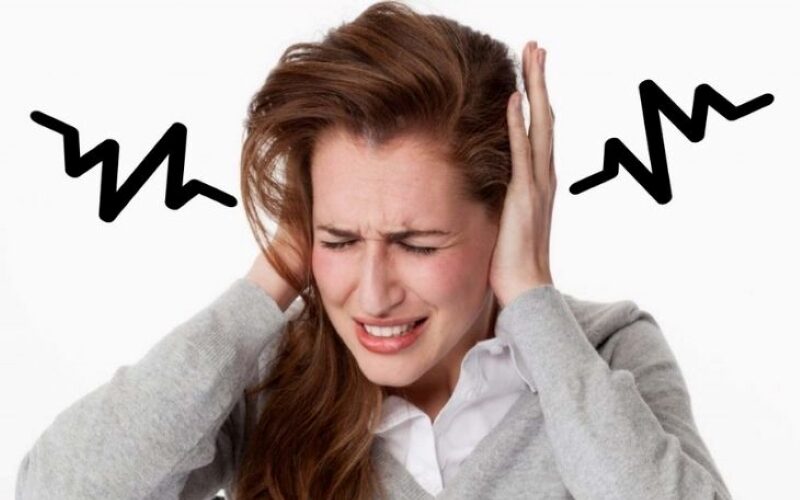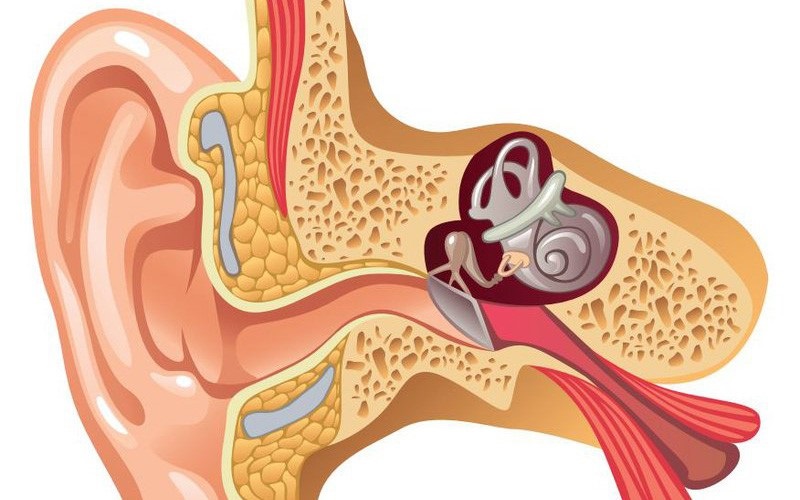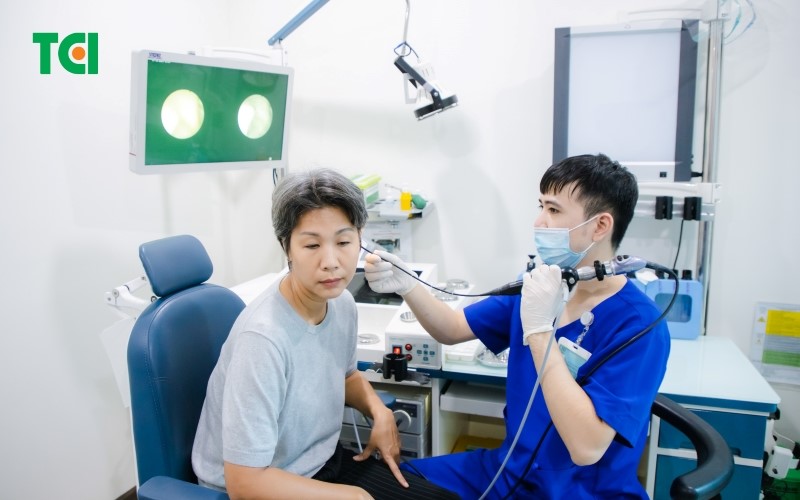Tinnitus, commonly known as a ringing or buzzing in the ears, can be a symptom of various underlying health issues. This auditory disturbance may occur in one or both ears and can range from a mild annoyance to a severe problem affecting daily life. Understanding the causes of tinnitus and knowing how to manage it is crucial for maintaining overall health and well-being.
1. Causes of Tinnitus
Tinnitus can be categorized based on its underlying causes, which are either non-pathological or related to specific medical conditions.

Tinnitus can be uncomfortable and may be caused by various factors.
1.1 Non-pathological Causes
As we age, the auditory system naturally undergoes changes, often leading to tinnitus. This age-related hearing loss is a common cause of tinnitus, particularly in older adults. Additionally, several other factors can cause temporary tinnitus:
– Water trapped in the ear: After swimming or bathing, water can get lodged in the ear canal, causing a temporary ringing sensation.
– Exposure to loud noises: Sudden or prolonged exposure to loud sounds, such as concerts, construction noise, or gunfire, can lead to tinnitus.
– Changes in altitude: Rapid altitude changes, such as flying or diving, can cause ear pressure imbalances, resulting in temporary tinnitus.
– Medications: Certain medications, including some antibiotics and cancer drugs, have side effects that include tinnitus.
– Substance use: Stimulants like caffeine, nicotine, and alcohol can exacerbate tinnitus.
– Stress and psychological factors: High levels of stress and anxiety can trigger or worsen tinnitus, highlighting the connection between mental and auditory health.
1.2 Pathological Causes

One of the causes of tinnitus may originate from an underlying medical condition.
Tinnitus can also be symptomatic of more serious health conditions. These include:
– Ear infections: Conditions such as otitis externa, otitis media, and labyrinthitis can cause inflammation and tinnitus.
– Mechanical and metabolic disorders: Prolonged use of earphones, exposure to high-noise environments, and conditions affecting the small bones of the ear can disrupt sound transmission, leading to tinnitus.
– Middle ear tumors: Abnormal growths in the ear, such as glomus tumors, can press on auditory structures, causing tinnitus.
– Meniere’s disease: This inner ear disorder is characterized by tinnitus, vertigo, and hearing loss, often leading to significant impairment.
– Ear injuries: Damage to the ear, including the mastoid bone or skull fractures, can result in tinnitus.
– Neurological conditions: Disorders like myoclonus, affecting muscle control, or problems with blood circulation, such as aneurysms, high blood pressure, or vestibular schwannomas (acoustic neuromas), can cause tinnitus.
– Cervical spine degeneration: Issues with the cervical vertebrae can affect the blood flow to the inner ear, leading to tinnitus.
– Carotid artery or jugular vein disorders: Circulatory problems involving these major vessels can lead to decreased blood supply to the ear and cause tinnitus.
2. The Impact of Tinnitus
Tinnitus is not only a symptom of various health conditions but also directly affects daily communication and quality of life. It can interfere with hearing, making it difficult to focus or sleep. The persistent noise can lead to irritability, stress, and fatigue, emphasizing the need for timely intervention.
Healthcare professionals advise that when tinnitus persists or is accompanied by other symptoms such as hearing loss, pain, sore throat, or dizziness, it is essential to seek medical evaluation. Early diagnosis and treatment are crucial, particularly for serious conditions like infections or tumors.

Seek medical evaluation to accurately diagnose the underlying condition and receive appropriate treatment for tinnitus.
3. Diagnosis and Treatment of Tinnitus
3.1 Diagnostic Approach
To diagnose tinnitus, a thorough examination by an otolaryngologist (ENT specialist) is necessary. This process includes:
– Patient history: Information on the duration, frequency, and nature of tinnitus, as well as any related symptoms like vision problems, swallowing difficulties, or speech issues, is gathered.
– Physical examination: The focus is on the ear and nervous system, checking for earwax blockage, foreign objects, or eardrum abnormalities. Hearing tests and reflex checks may also be performed.
– Advanced testing: For complex cases, additional diagnostic tests such as imaging or blood tests might be required.
3.2 Treatment Options
Treatment depends on the underlying cause:
– Simple cases: For non-serious, transient tinnitus caused by daily activities, symptoms often resolve on their own with minimal intervention, such as drying the ear after water exposure.
– Infections: Bacterial infections are treated with appropriate antibiotics, while ear hygiene practices are recommended to prevent recurrence.
– Hearing loss: If tinnitus is associated with hearing loss, devices like hearing aids may help reduce the perception of tinnitus.
– Psychological factors: Managing stress through therapies such as cognitive-behavioral therapy (CBT) can be effective, and avoiding stimulants is advised.
– Serious conditions: For life-threatening or chronic illnesses causing tinnitus, specialized treatments, including surgery, may be necessary.
4. Preventing Tinnitus
Preventing tinnitus involves proactive health management, including:
– Protecting your ears: Use ear protection in noisy environments and avoid sudden pressure changes.
– Maintaining overall health: Avoid irritants, manage weight, and keep stress levels low.
– Regular check-ups: Routine medical examinations can help identify and manage potential health issues before they cause tinnitus.
Tinnitus can be a sign of serious underlying health conditions. Prompt diagnosis and treatment are essential to prevent complications and improve quality of life. Regular health checks and proactive management of risk factors can help prevent tinnitus and maintain auditory health.








